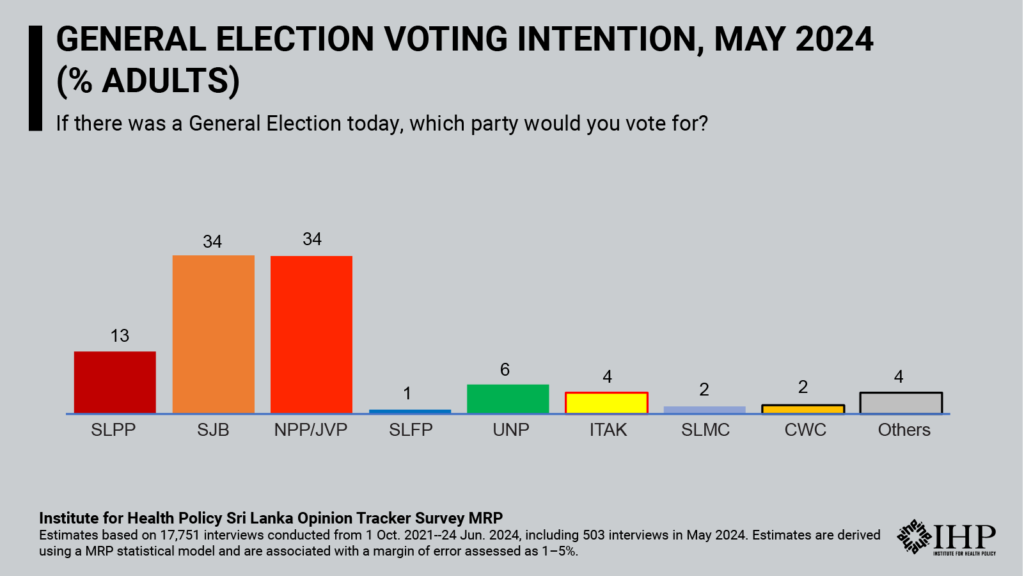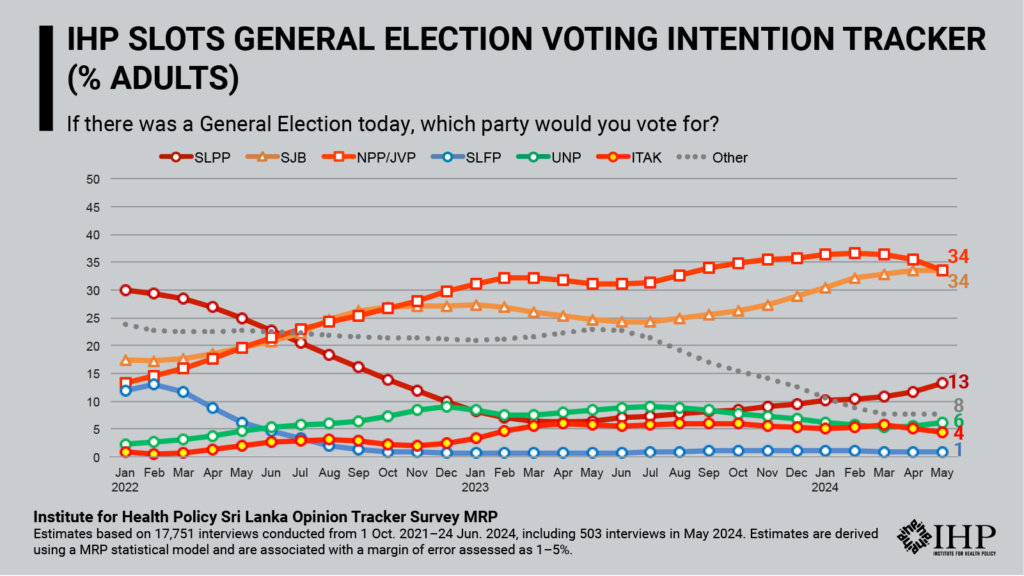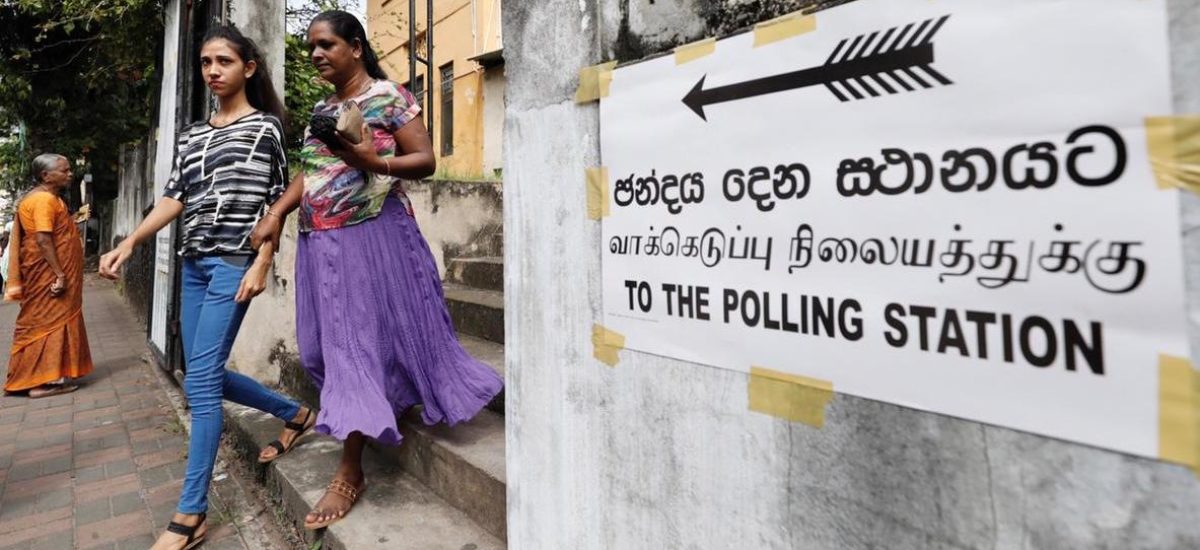Photo courtesy of DW
The latest estimates from Institute for Health Policy’s (IHP) SLOTS MRP model shows little changes in voting intention amongst all adults in May 2024. SJB (remains unchanged at 34%) and NPP/JVP (-1%). Both SJB and NPP/JVP are tied with voter support of 34%, followed by SLPP with 13% (-1), UNP with 6% (unchanged) and ITAK with 4% (-1). The May estimates are provisional and are associated with a margin of error of 1-5% for the four leading parties.


These estimates are for all adults and not for likely voters. They are based on the IHP SLOTS Multilevel Regression and Poststratification (MRP) model. Differences in voting intent shares between all adults and likely voters have typically been 1-2% for most estimates in the past two years.
This May 2024 update is based on 17,751 interviews conducted across Sri Lanka since October 2021, including 503 interviews carried out in May 2024. IHP’s SLOTS MRP methodology first estimates the relationship between a wide variety of characteristics about respondents and their opinions, in this case, “If there was a General Election today, which party would you vote for?” in a multilevel statistical model. It then uses a large data file that is calibrated to the national population to predict voting intent each month since October 2021, according to what the multilevel model says about their probability of voting for various parties (‘post-stratification’) at each point in time.
SLOTS combines interviews from a national sample of adults (ages 18 and over) reached by random digit dialling of mobile numbers, and others coming from a national panel of respondents who were previously recruited through random selection and face to face interviews.
The May 2024 MRP estimates are based on 17,751 interviews conducted from 1 October 2021–24 June 2024, including 503 interviews conducted in May 2024. MRP is a method that is increasingly used by polling firms in other countries to leverage small samples, most notably by YouGov which used it to forecast results of the UK Brexit Referendum and recent UK general elections. All estimates are adjusted to ensure the sample matches the national population with respect to age, sex, ethnicity, socioeconomic status, education, geographical location and voting in the 2019 presidential and 2020 general elections.

